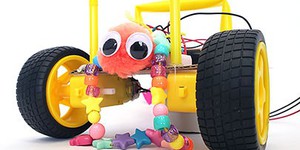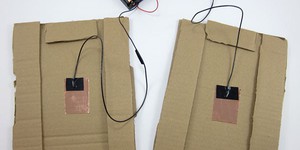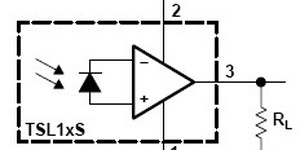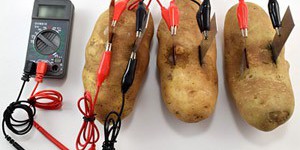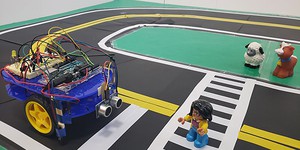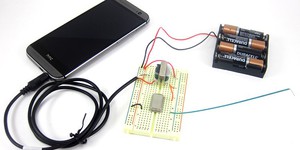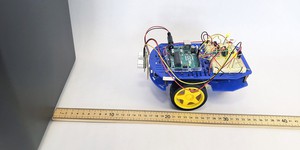Others Like “Electric Play Dough Project 3: Light Up Your Sculptures!” (top 20 results)
|
Beginner robotics projects like the Art Bot and
Bristlebots are fun, but the robots wobble around randomly and cannot steer. If you are ready for a robotics project that is a little more advanced (that does not require any programming), try this one out! You will build your own steerable robot with a wired remote control.
Read more
It's fun to host and attend parties. You can meet your friends, watch movies, and eat party food. Another thing that people like to do at parties is dance to music. Dancing is great exercise and just makes people happy. What if at the next party you attend, you could do your science fair project? Doesn't sound like a good idea? Well, in this electricity and electronics science fair project, you will make a dance pad that flashes lights when you step on it. Have your friends test it out for you.…
Read more
LEDs (light-emitting diodes) are electronic components that convert a portion of the electrical energy flowing through them into light. How does the intensity of the light produced vary with the current flowing through the LED? To find out, you'll build some simple circuits to vary the current flowing an LED. You'll also build a simple light-to-voltage converter circuit to measure LED output.
Read more
Sometimes engineers get ideas to build robots from animals in nature. There are robot dogs, robot snakes, robot birds, robot cheetahs, and even tiny robotic insects! In this science project, you will build a robot insect of your own. The robot will automatically drive toward a light source, mimicking a behavior called phototaxis, seen in some insects. You will build your own robot and then make adjustments so it can reliably drive toward a light.
Read more
Have you ever seen a cat chase a laser pointer or a flashlight beam? What if you could make a robot do that? In this project, you will build a robot that can automatically drive toward a bright light source. The robot uses a simple electronic circuit to track light, so there is no computer programming required! You can also do three other robotics projects using the same kit of parts, so this is a great way to get started with robotics before moving on to more advanced projects.
Read more
Imagine telling your friends about your latest science project: using a battery to make a light turn on. You might get some blank stares...sounds a little boring and basic, right? Now tell them you will do it with a potato! Yes, you can actually use fruits and vegetables as part of an electric power source! Batteries power many things around you, including cell phones, wireless video game controllers, and smoke detectors. In this science project, you will learn about the basics of battery…
Read more
How do self-driving cars stay on the road? How do vehicles with autonomous or driver-assist features automatically brake, steer around obstacles, or perform tasks like adaptive cruise control? Experiment with these behaviors and more in this science project as you build and program your own autonomous Arduino robot.
Read more
Have you ever wondered how an AM radio station works? In this project you will learn the basics of how your favorite songs are transmitted by a radio station, by building your own simple AM radio transmitter. You will learn the basics of how a transmitter works, and how you are able to tune to your favorite station and listen to music.
Read more
An electric current produces a magnetic field. You can take advantage of this fact to make a simple apparatus to test the electrical conductivity of various materials, including both solids and liquids. The detector consists of a coil of wire, with a magnetic compass inside it. You connect one end of the coil to a D-cell battery. The other end of the coil is connected to whatever material you are testing, and the material, in turn, is connected to the other end of the D-cell. In other…
Read more
How fast can a human driver react and hit the brakes when there is an obstacle in the road? Can autonomous cars react more quickly and make the road safer for everyone? In this project you will build your own Arduino robot and test human braking versus automatic braking as the robot drives toward an obstacle at full speed.
Read more
|
Explore Our Science Videos
Make a Hygrometer to Measure Humidity – STEM activity
Harvest Water from Fog Science Project
Build a Model Recycling Sorting Machine


